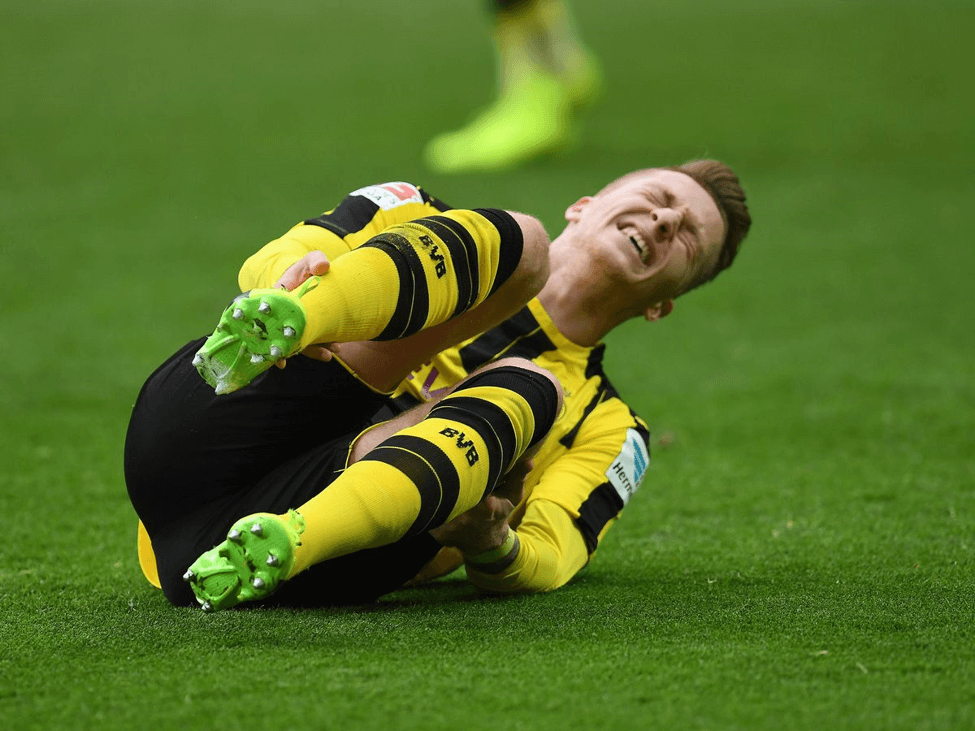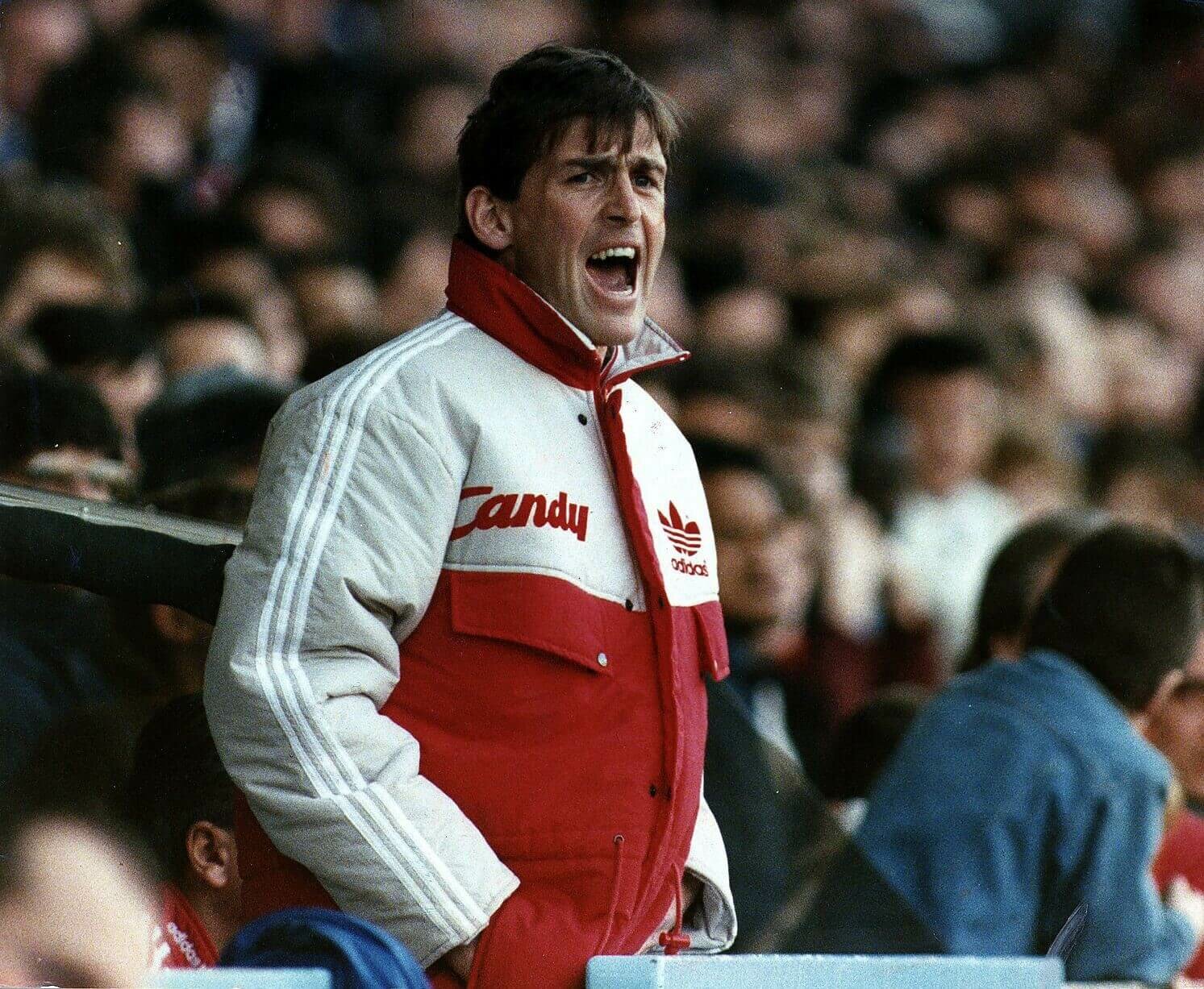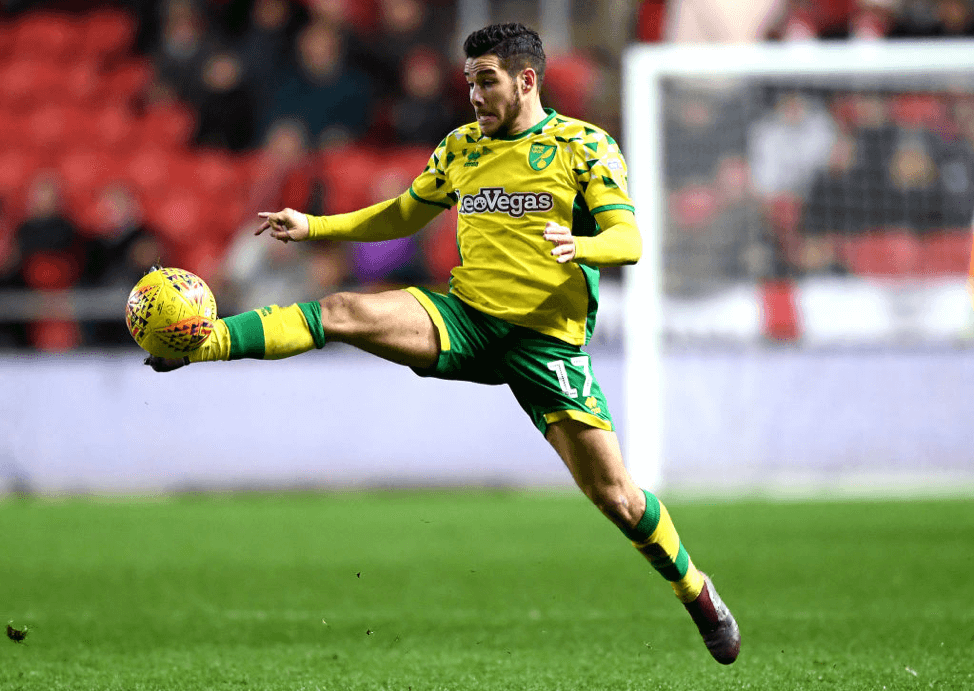THE TRIALS AND TRIBULATIONS OF BEING A PROFESSIONAL FOOTBALLER
It is commonplace to hear football chatter center around how the modern footballer, often dubbed as a “prima donna” has no excuses; the dream career, more money than to know what to do with, someone or the other to cater to their every little need and doing what they do best in front of screaming fans around the world. Yet, we see an array of footballers not grab their opportunity with both hands, or feet in this case and are chastised- left, right and centre for the entirety of their existence. However, simple factors, such as injuries, which are an unfortunate part and parcel of any footballer’s life are swept under the rug. Or luck, which can affect any human being. We explore the dark side, behind the glitz and glamour to shed light on the roadblocks a professional footballer is almost compelled to overcome.
Destined for greatness, Chelsea and France’s wonderkid, Kurt Zouma at 21 was on course to be one of Les Bleus’ first picks for the 2016 Euros. The French international was regarded as one of the best defenders in Europe, omnipresent at the back and built like a brick at the heart of Chelsea’s defense. However, his bid for the national call-up for the European Championships suffered a major setback when he landed rather awkwardly on his right knee, rupturing his anterior cruciate ligament (ACL) during a draw against Manchester United.
Zouma has since returned to Premier League action with Frank Lampard at the helm of the London-based club.
Fellow Frenchman, Aymeric Laporte has been a rock at the back for Athletic Bilbao as well as his current outfit Manchester City. City had signed Laporte for a reported fee of £57.2 million and while there is no running away from his defensive expertise, his career has been marred by injuries, on more occasions than he would like.
The latest of those was sustained in a challenge with Brighton’s Adam Webster. Laporte had reportedly damaged his cartilage and lateral meniscus in his right knee. The mercurial centre-half’s absence has been monumental to the Sky Blues’ poor title defence and is testament to how injuries can restrict the prospect of both the player as well the club.
Moving further up the pitch this time, one of the most gifted German players of this generation, Marco Reus has had a horrid time with injuries. With 23 goals in 45 club appearances, Dortmund’s skipper was enjoying a stellar season and was called upon by his national team coach, Joachim Loew for the 2014 World Cup. An injury to his ankle in a friendly just 10 days before the start of the competition forced him to watch his compatriots lift the cup at the Maracanã the following month. This has been the heartbreaking theme to the story of a player that is devastating, when fit and firing. Former Borussia Dortmund boss, Jürgen Klopp once described Reus as “one of the most dominant players in the Bundesliga” if not for his injuries.

Speaking about injuries and bad luck, Reus’ German compatriot, Sami Khedira’s name springs to mind. Khedira was ruled out of the 2014 World Cup final against Argentina after sustaining a calf injury during Die Mannschaft’s warm-up at the Maracanã in Rio de Janeiro. The former Real Madrid defensive midfielder was absolutely spot-on throughout the competition for the would-be champions, however misfortune meant he would miss the biggest match of his career due to what was the perfect example of a freak injury.
Strangely enough, Khedira’s replacement, Christoph Kramer lasted a mere 23 minutes on the pitch after Ezequiel Garay clattered into him, leading to Andre Schürrle coming off the bench and providing the matchwinning assist to Mario Goetze to lift the greatest honor in the beautiful game. Life works in funny ways.
Apart from injuries and just pure misfortune, mental health is an aspect that has been completely ignored by both the football fraternity and the general public. Mental health issues can affect each and every aspect of a person’s life and to be expected to always deliver at the highest level with all eyes on you, especially in the social media era becomes a massive challenge for footballers. It is almost as if being public figures, footballers are almost not allowed to have off days, bearing the brunt of a million expectations.
While measures have been taken over the past couple of years to discuss the internal battles that footballers face on a daily basis, looking at the history of ignorance, there is a long way to go. Certain gut-wrenching stories are an indicator of how to tackle issues of such sensitivity with openness and care; not for the purpose of furthering a player’s career, but rather to make them comfortable with themselves before anything else.
Robert Enke, the former Hannover and Germany goalkeeper’s demise was a stark wake-up call to the footballing world of how things may seem perfect on the outside, but the internal demons one faces can seem inescapable and take over someone’s will to keep fighting.
Enke was on course to become Germany’s No. 1 at the 2010 World Cup and was well-regarded as one of the country’s finest shotstoppers to burst onto the scene in a while. Shockingly, the German was hit by a train at a level-crossing near his home when a note was later recovered by his wife which revealed his intentions of committing suicide. Enke, who had difficult stint with Barcelona later joined and settled at Hannover FC.

Gone, but never forgotten
Robert had been fighting depression throughout his career and while he had been diagnosed with the condition in 2002, the loss of his 2-year old daughter-Lara due to a severe heart defect made matters worse for the sprightly ‘keeper as time wore on. Hindsight is a wonderful thing, but one always wonders if Robert Enke could have been helped and nurtured during such calamitous periods in his life to prevent an incredibly unfortunate end. Enke’s legacy lives on to this day.
Adriano, destined to be one of the greatest footballers of his generation and perhaps ever, saw his career come crashing down when his father passed away, suffering from ill health in 2004. There was no doubt in any observer’s mind that the Brazilian forward was a generational talent. However, things took a turn for the worse after his beloved father’s demise as he struggled with mental health issues and trauma.
“He kept playing football, scoring goals and pointing to the sky, dedicating them to his father,” said Javier Zanetti. In an interview in 2017, Adriano revealed the extremities of the dire state he was living under.
“I could only sleep if I drank. My coach, Roberto Mancini, and my team-mates noticed that I was hungover when I arrived for training. And I feared arriving too late, so I didn’t sleep and went to training still drunk. I slept in the medical department and Inter had to tell journalists that I had muscular pain.”
Inter Milan legend and former captain, Zanetti continues to regret being unable to save Adriano from his pain that ultimately destroyed his career.
“We did not succeed of pulling him out of depression. And that is perhaps my biggest defeat of a whole career. It still hurts me. I was so powerless.”
Despite the extreme lows Adriano endured during his career, football fans look back upon The Emperor fondly as he made a mockery of defenders at their very peak. And he made it look very easy while he was it.

While the aforementioned aspects are battles too big and often, out of the control of footballers to defeat to begin with, racism is one that in theory, should be nowhere near the sport, but is simply a mirror to societal prejudice and discrimination.
Kick It Out head, Sanjay Bhandari’s assessment of racism is a true reflection of the sad state of affairs in this day and age.
“Over a 40, 50-year period? We’ve definitely (made progress). But it’s worse than it was 5 years ago, and it’s worse than it was 7 years ago. Over the past few years, the racists and the xenophobes have been keeping busy all over Europe and other parts of the world with racist chants and monkey gestures aimed at the players.’
Italian football has been the hub of all unwanted racial controversies in recent times. As per several reports, kids as young as 12 have suffered racist abuse from spectators in stadiums. Even with continued punishments and stadium bans, the situation hasn’t improved with almost 80 incidents recorded in the last 2 years.
Mario Balotelli is certainly one who has been on the receiving end of several racist chants and had recently kicked the ball into the crowd when he was subject to such abuse against Verona. Players from both the sides dissuaded the Italian from doing so which is perhaps the worst reminder of how even professionals want to gloss over the disgraceful sub-text of the agenda raised by ultras across stadiums in Italy.
More recently, Romelu Lukaku, who has been in sublime form since joining Inter Milan from Manchester United was racially abused at Verona. The punishment? A partial stadium ban imposed on Hellas Verona F.C.
Similarly, England players on international duty were racially abused during their 5-1 win in Montenegro. Racist chants were directed at several players including Danny Rose, then 18-year old debutant Callum Hudson-Odoi as well as Three Lions talisman, Raheem Sterling.

Jason McAteer’s scathing attack on of Paul Pogba for Manchester United’s deep-rooted failure, despite the French international missing the season through injury smacks of a racial undertone that is in extremely poor taste, but is typical of the British media at this point.
Racism on the football pitch demonstrates the ugly side of the beautiful game. And just as footballers across Europe are calling it out, we as fans of the beautiful game need to understand that the stakes are huge and change comes from within.
Much like how footballers can become overnight global superstars, things can come crashing down at the same pace when things go south. Understanding that all that glitters is not gold is key as the mammoth bank balance, swanky cars and female attention also come with career-threatening injuries, constant scrutiny from pseudo-pundits on social media, unimaginable pressure and an incessant invasion of privacy which means there’s no hiding place for today’s footballers.
Read More
SWIMMING WITH THE SHARKS: THE EMILIANO BUENDÍA STORY
ABHISHEK DASH
FEATURES
DELVING INTO THE OVERLOOKED TRANSFER APPROACH OF SIGNING PLAYERS FROM RELEGATED CLUBS
ANAAMAYA MISHRA
FEATURES



